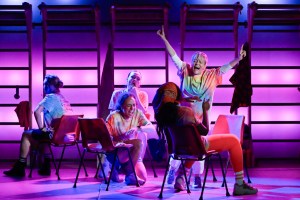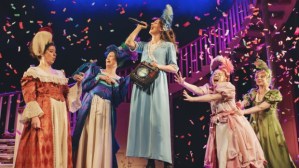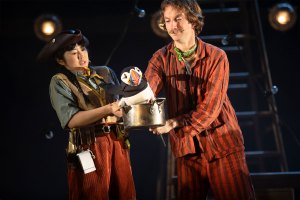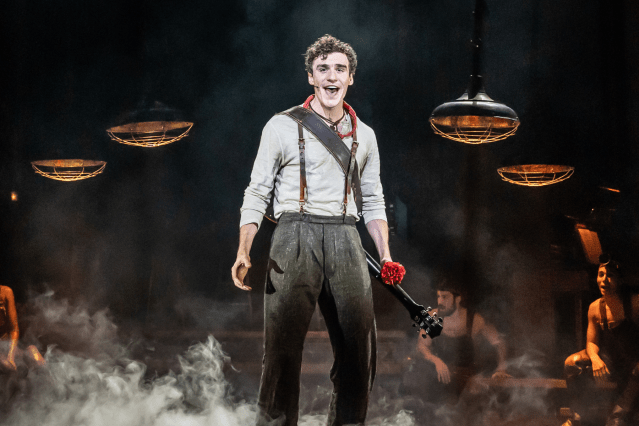The Grand Old Opera House Hotel at Edinburgh Festival Fringe – review
Isobel McArthur’s latest play transcends all genres for a theatrical celebration

Writer Isobel McArthur scored a hit with her Pride & Prejudice* (Sort Of), a take on Jane Austen that was both parody and tribute and absolutely fizzed with invention.
Her follow-up, The Grand Old Opera House Hotel, commissioned by the Traverse Theatre and unveiled at the Edinburgh Fringe, is a wildly original sort-of farce cum sort-of musical that starts in one genre, goes through several more, and ends up as a full-blown opera. It shares the same knack (a word that recurs in the script) of sending up the conventions it is working within – and yet revealing them in all their glory. I really loved it.
It opens on Ana Inés Jabares-Pita’s ingenious set, in front of a salmon pink concertina of identical doors, belonging to the Scomodo Hotel, one of those chains that prides itself on being “a contemporary space” of identical rooms, whose numbers are shown in the lighting panels by each door.
But something is afoot. The lighting panels are flickering, the doors stick, the guests are disturbed by terrible noises and Aaron (a wonderfully harassed Ali Watt) has seen what he thinks is a ghost on his way to staff training. “She was singing… hearing her, I think it rearranged my atoms.”
The voice belonged not to a spirit, but to Amy (gentle Karen Fishwick) whose hobby is opera and who took the job in this soulless environment because it was built on the site of a 19th century opera house, destroyed by fire. The story goes that the singers – who were lovers – perished in the blaze.
The action from then on consists of Aaron searching for his ghost and Amy trying to find him, to tell him she is flesh and blood. She leaves him a Walkman full of arias, and gradually the music seeps into his life – embodied by richly dressed figures who appear and disappear, recreating moments from Carmen, Turandot, and other famous operas. The words appear on a screen above the action, providing a commentary at once ironic and emotional.
Alongside this love story, which is also a ghost story, runs a farce about hotel life with an extraordinarily hard-working cast of five taking all the parts. Then something even more exceptional happens. As the narrative reaches its crescendo, everyone begins to sing. A play transforms into an opera, full of sample tunes and pastiches.
It is all richly comic and clever, and holds the attention even though some scenes could benefit from pruning and honing. Director Gareth Nicholls keeps everything at fever pitch, when the humour could occasionally do with more space to land.
But the occasional stumbles don’t detract from the show’s inventiveness, and the cast are wonderful, switching roles with aplomb, both as actors and singers. Ann Louise Ross and Barrie Hunter reveal particularly fine timing; but Christina Modestou, Laura Lovemore and Betty Valencia all have their moments in the sun.
Underneath it all, runs a vein of melancholy, a constant reminder that music, art, and history can enrich life and understanding, that theatres and opera houses aren’t dusty old places without meaning but transformative arenas for stories and song. It’s a gently applied underpinning to an uproarious show but there is a scene when a despairing woman is about to jump from a window and Aaron bursts into a Donizetti aria as consolation which carefully underlines the truthfulness of McArthur’s general point.
















